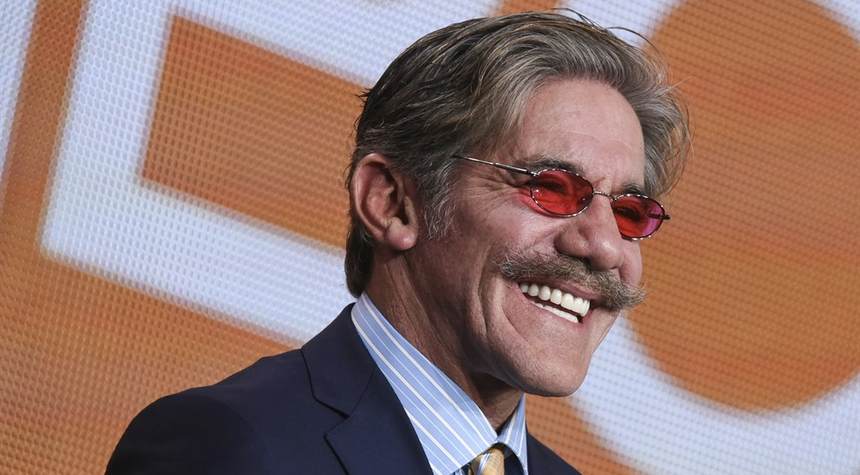The same day Tucker Carlson taped what turned out to be his final show for now-fallen Fox News and then delivered compelling remarks at the Heritage Foundation’s 50th-anniversary gala, a group called Project 2025—led by Heritage—released an 887-page guide for the next presidential administration. Titled Mandate for Leadership, this movement-wide effort is modeled after Heritage’s original Mandate for Leadership series, which, in its own words, “was conceived in the fall of 1979 as a means of assisting the transition to a new administration in the event that a conservative President were elected in 1980.”
Now faced with an administration that combines Jimmy Carter’s incompetence, Barack Obama’s goal of “fundamentally transforming the United States of America,” and a level of lawlessness previously unseen, the 2023 version of Mandate for Leadership is an important work for charting a path forward out of the morass.
“This book is functionally an invitation for you the reader—Mr. Smith, Mrs. Smith, and Ms. Smith—to come to Washington or support those who can,” writes Project 2025 Director Paul Dans. “Our goal is to assemble an army of aligned, vetted, trained, and prepared conservatives to go to work on Day One to deconstruct the Administrative State.”
The group I run, the American Main Street Initiative, is on Project 2025’s advisory board, along with the Claremont Institute, American Moment, Hillsdale College, and 50 other conservative groups. I had the opportunity to write the introductions to each of the book’s five sections, and the first one begins this way:
America’s Bicentennial, which culminated on July 4, 1976, was a spirited and unifying celebration of our country, its Founding, and its ideals. As we approach our nation’s 250th anniversary, which will take place during the next presidency, America is now divided between two opposing forces: woke revolutionaries and those who believe in the ideals of the American revolution. The former believe that America is—and always has been—‘systemically racist’ and that it is not worth celebrating and must be fundamentally transformed, largely through a centralized administrative state. The latter believe in America’s history and heroes, its principles and promise, and in everyday Americans and the American way of life. They believe in the Constitution and republican government. Conservatives—the Americanists in this battle—must fight for the soul of America, which is very much at stake.
The book is full of actionable items to advance the ideals of our founding. In the chapter on the Department of Justice, Attorney General Jeff Sessions’ former counselor, Gene Hamilton, writes that the department’s “unprecedented politicization and weaponization” under Joe Biden and Attorney General Merrick Garland, resulting in “politically motivated and viewpoint-based prosecutions” of political enemies and indifference to the crimes of political allies, has made the once-proud department “a threat to the Republic.”
The prime example of this is the FBI, which Hamilton aptly calls “completely out of control” and a bureaucracy that “views itself as an independent agency” that’s “on par with the Attorney General.” To help remind the FBI of its actual place in the department’s hierarchy, Hamilton writes that the FBI’s separate Office of General Counsel (with “approximately 300 attorneys”), its separate Office of Legislative Affairs, and its separate Office of Public Affairs, should all be abolished.
Making the FBI get its legal advice from the wider department, Hamilton maintains, “would serve as a crucial check on an agency that has recently pushed past legal boundary after legal boundary.” Indeed, he writes, “The next conservative Administration should eliminate any offices within the FBI that it has the power to eliminate without any action from Congress.”
Of course, it’s hardly just the FBI that has been lawless of late. In the introduction to the section called “Taking the Reins of Government,” I write, “Presidents should not issue mask or vaccine mandates, arbitrarily transfer student loan debt, or issue monarchical mandates of any sort. Legislatures make the laws in a republic, not executives.”
In the chapter on the Executive Office of the President, former Office of Management and Budget Director Russ Vought says that “the modern Executive Branch . . . writes federal policy, enforces that policy, and often adjudicates whether that policy was properly drafted and enforced.” Vought describes this as “constitutionally dire” and “in urgent need of presidential control and repair,” adding: “Nothing less than the endurance of self-governance in America is at stake.”
“Americans have understood that the surest way to avoid war is to be prepared for it in peace,” writes former acting Secretary of Defense Christopher Miller in the chapter on the Pentagon. However, “the Biden Administration’s profoundly unserious equity agenda and vaccine mandates have taken a serious toll” on our military preparedness. Such wokeness and risk-aversion—think of masked soldiers, sailors, and airmen—along with “the atrophy of our defense industrial base,” has “exacted a high toll on America’s military.”
Consistent with Miller’s concerns, Vought writes that the National Security Council “should rigorously review all general and flag officer promotions to prioritize the core roles and responsibilities of the military over social engineering and non-defense related matters,” including “climate change, critical race theory, manufactured extremism, and other polarizing policies” that “weaken our armed forces and discourage our nation’s finest men and women from enlisting.”
Miller writes that in the face of China’s “historic military buildup,” which “could result in a nuclear force that matches or exceeds America’s,” we “must treat missile defense as a top priority.” He says we must also make “the subordination of Taiwan or other U.S. allies in Asia prohibitively difficult.” “Critically,” he adds, “the United States must be able to do this at a level of cost and risk that Americans are willing to bear.” As I write in the introduction to that section,
The best gauge of such willingness is congressional approval. Accordingly, we must rediscover and adhere to the Founders’ wise division of war powers, whereby Congress, the most representative and deliberative branch, decides whether to go to war; and the executive, the most energetic and decisive branch, decides how to carry it out once begun. As the past 75 years have repeatedly demonstrated in different ways—from Korea, to Vietnam, to Iraq, to Afghanistan—we depart from our constitutional design at our peril.
The China threat is emphasized throughout the book. This includes the threat posed by American corporations that want access to China’s markets and are therefore willing to cozy up to that authoritarian regime. Kiron Skinner, the former director of policy planning at the State Department, writes in the chapter on the Department of State that “a policy toward China of ‘compete where we must, but cooperate where we can’ . . . has demonstrably failed.”
China’s “aggressive behavior,” Skinner writes, “can only be curbed through external pressure,” while efforts to protect or excuse China must stop, such as when “many were quick to dismiss even the possibility that COVID escaped from a Chinese research laboratory.”
Skinner argues that effective leadership from political appointees is particularly crucial at State, where many left-leaning career staff believe the department “knows what is best for the United States, sets its own foreign policy, and does not need direction from an elected President”—regardless of what the Constitution says about where the executive power is vested.
The State Department similarly shouldn’t act as an advocacy group for leftist causes. In the intro to the section on “The Common Defense,” I write, “Divisive symbols such as the rainbow flag or the Black Lives Matter flag have no place next to the Stars and Stripes at our embassies.”
Having an army of effective political appointees is crucial not only at State but also across the entire executive branch. Dans, Donald Devine, and Dennis Kirk observe in their chapter on the central personnel agencies that “the Trump Administration appointed fewer political appointees in its first few months in office” than any other recent presidency, which left career employees in charge in many places. This didn’t serve Americans’ interest.
Nor, often, has our trade policy. In a chapter on trade, Competitive Enterprise Institute President Kent Lassman and former White House director of trade and manufacturing policy Peter Navarro debate what an effective conservative trade policy should look like. Championing untrammeled free trade, Lassman argues that “protectionism and similar progressive policies tend to weaken American security,” while “trade creates peace” and prosperity.
Navarro replies that the United States is “the globe’s biggest trade loser and victim of unfair, unbalanced, and non-reciprocal trade.” Arguing that we should “decouple” our economy from China’s, he writes that “offshoring not only suppresses the real wages of American blue-collar workers and denies millions of Americans the opportunity to climb up the rungs of the ladder to the middle class,” but it also “raises the specter of a manufacturing and defense industrial base” unable “to provide the weapons and materiel” needed in a potential major conflict.
In all, the book contains 30 chapters on different components of the executive branch. As I write in the introduction to the section on the economy, “For several decades, establishment ‘elites’ have failed the citizenry by refusing to the secure our border, outsourcing manufacturing to China and elsewhere, spending recklessly, regulating constantly, and generally controlling the country from the top down rather than letting it flourish from the bottom up.” Mandate for Leadership is a worthy contribution to trying to reverse that trend in 2025 and beyond.








